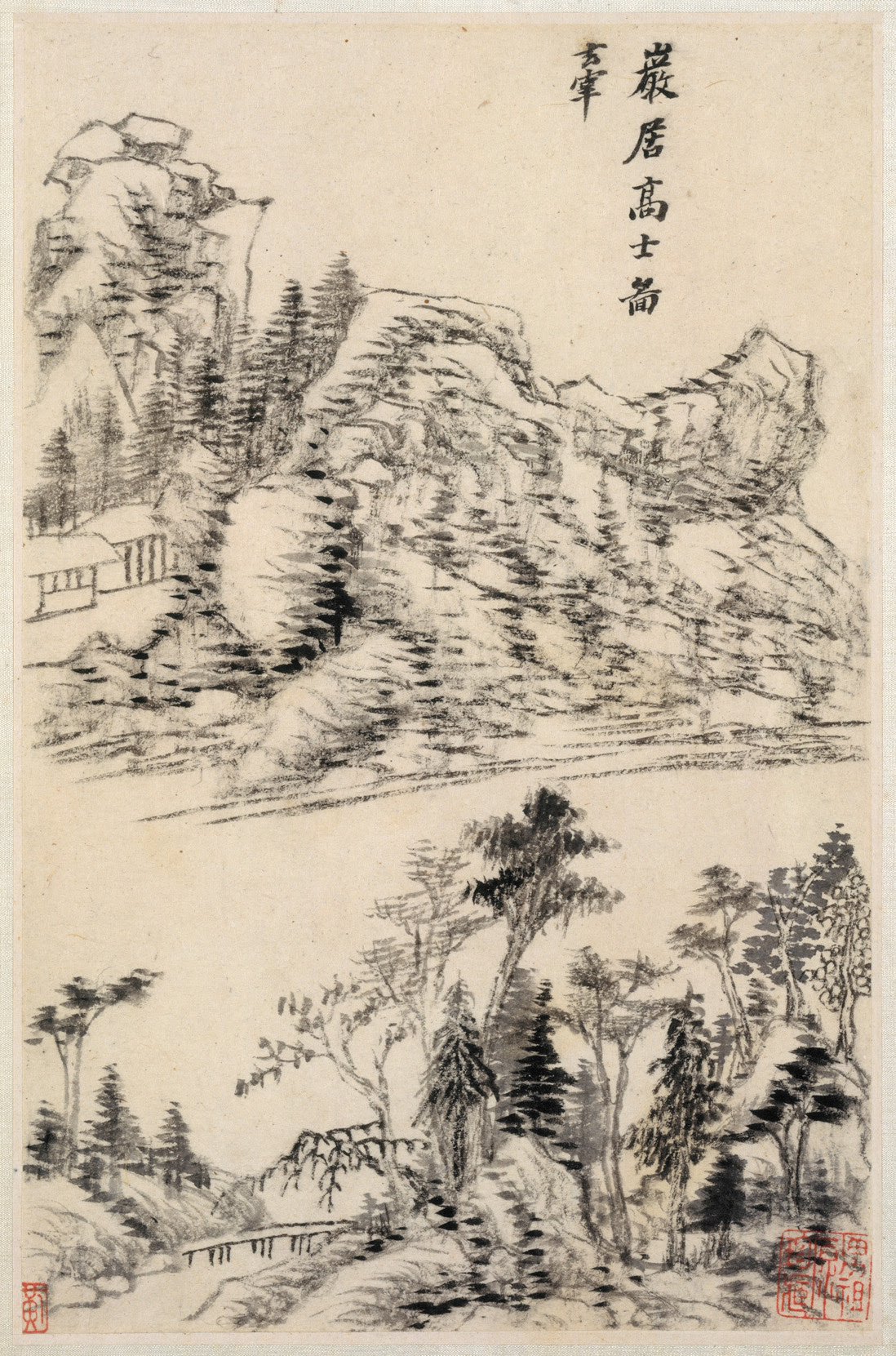Landscapes after old masters by Dong Qichang.
The following activities and questions are designed to help your students use their noticing skills to move through the poem and develop their thinking skills so they understand its meaning with confidence, using what they’ve noticed as evidence for their interpretations. Read more about the framework upon which these activities are based.
-
Warm-up: With your class, try a walking meditation outside, if that is available to you, or around the school building. After your walking meditation, stop and journal. What did you observe? Think about what you saw, heard, and smelled. How did this feel in your body?
-
Before Reading the Poem: Look closely at the images from the series Landscapes after old masters by Dong Qichang. After viewing the images, what stands out to you? What patterns did you notice? What might these patterns reveal?
-
Reading the Poem: Silently read the poem “The Excursion” by Tu Fu. What do you notice about the poem? Note any words or phrases that stand out to you or any questions you might have.
-
Listening to the Poem: Enlist two volunteers and listen as the poem is read aloud twice. Write down any additional words and phrases that stand out to you.
- Small Group Discussion: Share what you noticed about the poem with a small group. How might this poem relate to the resources from the beginning of class? What do you think of the title? How might the poem be different with another title?
-
Whole Class Discussion: What imagery do you see in the poem? How does it describe the setting? How does the first section of the poem compare to the second section?
-
Extension for Grades 7-8: Think back to your guided meditation at the beginning of class and the observations you made. Use these observations to write your own poem that explores nature.
-
Extension for Grades 9-12: In honor of Asian American Pacific Islander Heritage Month, research a poet’s work that interests you. Create a presentation that shares what you learned about this poet, their accomplishments, and your favorite poems by this poet.
“In the month of May we take time to reflect and celebrate the important role that Asian Americans, Native Hawaiians, and Pacific Islanders have played in our shared history.” Read more about Asian/Pacific American Heritage Month and find archives, toolkits, and other resources.

